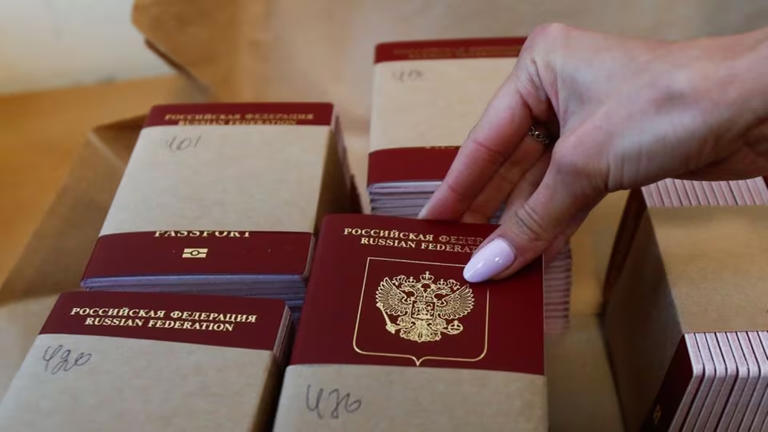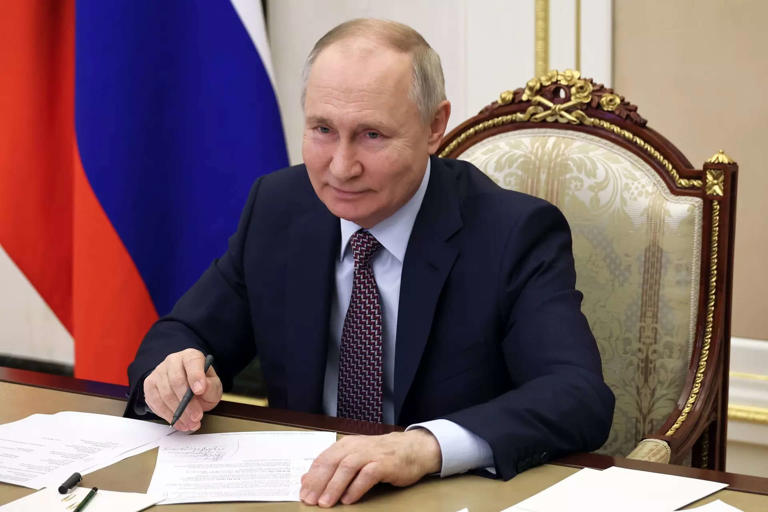As the war in Ukraine grinds on, Vladimir Putin’s Russia faces a crucial dilemma: how to bolster its military without resorting to another potentially crippling mobilization of Russian citizens. The answer, it seems, lies in a new policy aimed at luring foreign fighters with the promise of expedited citizenship. This move, however, carries significant risks and raises broader questions about the trajectory of the conflict and the state of Russian society.
The new decree, announced on Thursday, makes it significantly easier for foreigners to acquire Russian citizenship if they enlist in the army or volunteer for “army formations” involved in the “special military operation” in Ukraine. This expedited process bypasses several of the usual hurdles, including the five-year residency requirement, Russian language proficiency tests, and knowledge of the country’s history and laws. Applications will also be processed in a mere month, a stark contrast to the typical three-year wait.

Putin’s Risky Move: Unpacking the Desperate Gamble in Ukraine
This is not the first time the Kremlin has resorted to such enticements. Similar measures were implemented in September 2022 and May 2023, highlighting the persistent struggle to maintain troop levels in the face of heavy losses and waning domestic support for the war. Despite Putin’s claims of abundant volunteers, speculation about a new mobilization wave has been rife, and a new decree suggests the Kremlin wants to avoid this unpopular option at all costs.
The Kremlin’s desperation manifests not only in the carrot of fast-track citizenship but also in the stick of forced recruitment. Reports have emerged of law enforcement officers targeting migrant workers from Central Asia, often found in mosques and work warehouses, pressuring them to sign army contracts. This coercive aspect casts a dark shadow on the supposed “volunteer” nature of the program and raises concerns about human rights abuses.

Policy implications on Labour
Beyond immediate battlefield considerations, the policy also reflects Russia’s growing reliance on migrant labour to offset a shrinking domestic workforce and an aging population. Over three million migrant workers arrived from Central Asia in 2023, filling vital roles in construction and basic services. While this helps the economy, it also creates a vulnerable underclass susceptible to exploitation, including potentially being used as cannon fodder in a foreign war.
The long-term implications of this policy remain uncertain. Will it be enough to replenish Russia’s dwindling troop numbers and sustain the war effort? Or will it simply exacerbate ethnic tensions within Russia and further alienate the populace? The answer hinges on factors beyond the battlefield, including the war’s progress, the economic situation, and the Kremlin’s ability to maintain social control.
Outcome of the Policy
One possible outcome is that the influx of foreign fighters leads to a prolonged but ultimately fruitless conflict. This scenario could see further international isolation for Russia, increased strain on the domestic economy, and a rise in anti-war sentiment within the country. Additionally, the integration of diverse foreign nationals into the military raises potential issues of cohesion and loyalty, posing further challenges for the Kremlin.
Also Read: Barron Trump: The Mystery Kid Emerges from the Shadows as Melania Shields Him Amidst Trump Legal Storm
Alternatively, the policy could backfire spectacularly. If forced recruitment becomes widespread, it could ignite significant discontent among migrant communities and trigger unrest within Russia. This scenario could destabilize the country further and even lead to Putin’s ouster.
Ultimately, the success or failure of this policy will depend on a complex interplay of internal and external factors. While it may provide a temporary reprieve for the Kremlin, it carries significant risks and exposes the deep fissures within Russian society. Putin’s gamble for foreign fighters could yet prove to be his undoing, further unravelling the fabric of his regime and pushing Russia even deeper into the quagmire of war.
